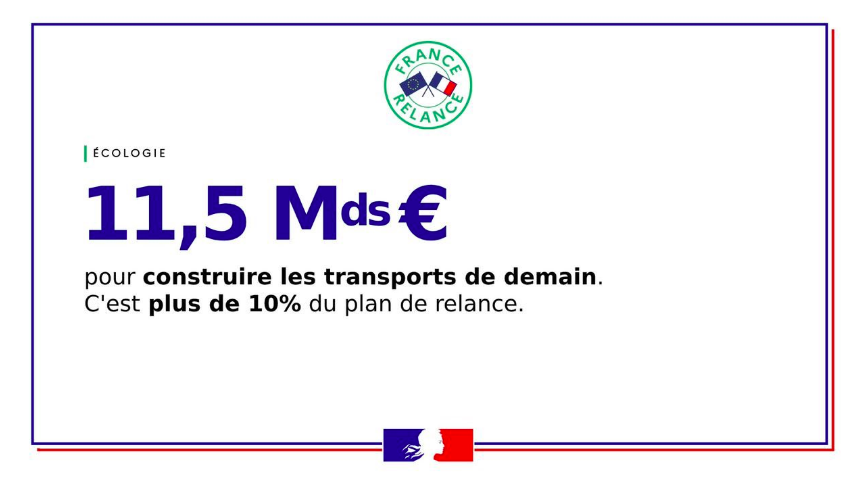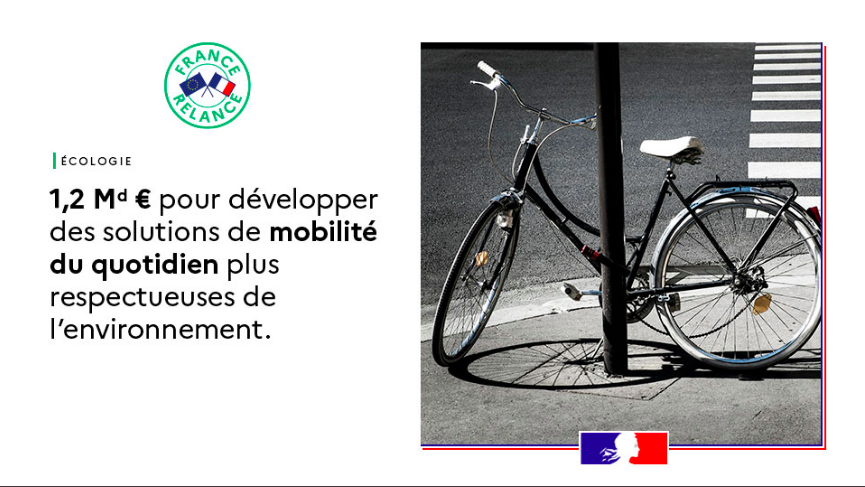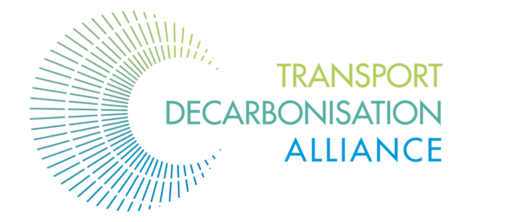France's green recovery plan on decarbonising transport
In response to the economic impact of the current health crisis, the government of France presented on 3 September a 100 billion euro recovery plan to support economic activity and bolster job creation. This plan will pave the way for a more vibrant French economy towards 2030, speeding up the ecological transition.
France’s green recovery plan focuses on transport: 11.5 billion euros

Ecological transition is one of the three pillars of the recovery plan – with 30 billion euros dedicated to green investments in France, which aims to become Europe’s largest carbon-free economy. To this end, transport decarbonisation is a key measure of the plan. As a member of the Transport Decarbonisation Alliance (TDA), France is living up its status as a frontrunner in the struggle to realise the decarbonisation of transport. This plan is a testament to that.
Acceleration of French investments for green daily mobility: 1.2 billion euros

Three measures to green everyday mobility:
· Promoting the growth of bicycle use both in urban and rural areas by perpetuating the bicycle networks built at the beginning of the crisis and by introducing multimodal solutions.
· Supporting low carbon daily mobility such as rail transport with the deployment of metropolitan trains in major French cities such as those already existing in Paris.
· Investing in the improvement and development of public transport in order to increase its use.
Converting the French car fleet to green mobility: 1.9 billion euros
The French recovery plan promotes the deployment of clean vehicles: bonus schemes will keep on supporting demand for low and very low emission vehicles. It also seeks to adapt the network for clean vehicles by accelerating the deployment of charging points, with the goal of 100 000 publicly accessible charging points by the end of 2021. The plan also includes a conversion of the State’s vehicle fleet (64,000 vehicles will be replaced by zero or low carbon emission vehicles).
Supporting the development of railway solutions: 4.7 billion euros

Railway solutions will help reduce transport’s ecological and carbon footprint. Rail transport offers will be improved both for passengers (for example by developing night trains) and for goods (by guaranteeing the nearest possible connection to companies, ports and logistics platforms).
Investing in research and development of green technology solutions: 2.6 billion euros
The aeronautical and automotive sectors must be supported to ensure the capacity of companies to manufacture the next generation of vehicles: hybrid, electric and hydrogen. This is what will make it possible to complete the decarbonisation of transport.
Developing green hydrogen: 7 billion euros

The recovery plan has to be an opportunity for France to position itself at the forefront of renewable and low-carbon hydrogen production technologies with a view to achieving carbon neutrality by 2050.
The assertion of a port and maritime and river priority: 400 million euros
Moreover, the French recovery plan also targets a reduction in its ports’ emissions through the development of alternative fuel refuelling solutions, the installation of electric recharging stations and promoting modal shift (waterway, rail).
Read more in detail about the recovery plan here.
